“I can’t stand to see animals abused and neglected, but any place where there’s blight and empty houses, you’ll see dogs. I’ve been rescuing them for 31 years now, and I couldn’t begin to count how many I’ve caught and turned over to rescue groups. I’m the dogcatcher of last resort. I don’t get paid for it; I don't make a dime. I just do because I don’t want animals to suffer. I’ve gone out in ice storms; I’ve gone when I had to have somebody watch my back so I wouldn’t get shot. If a rescue group can’t catch a dog, they’ll call me, and I’ll help if I can. There are so many though, that I won’t do it unless somebody from the group agrees to meet me, shows me where the dog is, and can guarantee me there’s a place for it to go once it’s caught. Around Easter time I trapped a mama dog that was living under an abandoned house---a crack house---then crawled under the house and extricated her seven babies. The last two pups of that litter, Skip and Molly, are going to be adopted out within the next couple of weeks. There was another one I rescued from a trailer park last year; she was in agony, burning up with mange, one of the most miserable dogs I’ve ever seen. It took about a month to get her, but I finally did, and she has a loving home now. The woman who took her in sent me an update at Christmas time, with her sitting by the tree looking fat and healthy and beautiful. It’s great when things turn out that way.
“Pit bull mixes are the most common dog I end up rescuing in Memphis. People get them because they think they can breed them for money. Then when it comes down to paying their bills or taking care of their dogs, the dogs get turned out on the street to fend for themselves. If they’re not smart, they won’t last a week. If they are, then it’s because they’ve learned who and what to stay away from. There are probably 5,000 dogs on the streets of Memphis right now with nowhere to go, doing nothing wrong, just looking for something to eat.
“Most dogs people call feral were abused and would rather live on their own than trust another human. These animals need to be in the care of rescue groups. Some of them can be fostered and adopted; others never will be. There needs to be a better relationship between the local animal shelter and rescue groups. We could save a lot more dogs if there were. If you know of an animal that needs help, post on the Lost and Found Pets of the Mid-South FB page, include a photo, and ask for a rescue to step up.”
“Pit bull mixes are the most common dog I end up rescuing in Memphis. People get them because they think they can breed them for money. Then when it comes down to paying their bills or taking care of their dogs, the dogs get turned out on the street to fend for themselves. If they’re not smart, they won’t last a week. If they are, then it’s because they’ve learned who and what to stay away from. There are probably 5,000 dogs on the streets of Memphis right now with nowhere to go, doing nothing wrong, just looking for something to eat.
“Most dogs people call feral were abused and would rather live on their own than trust another human. These animals need to be in the care of rescue groups. Some of them can be fostered and adopted; others never will be. There needs to be a better relationship between the local animal shelter and rescue groups. We could save a lot more dogs if there were. If you know of an animal that needs help, post on the Lost and Found Pets of the Mid-South FB page, include a photo, and ask for a rescue to step up.”
Waylon (below), father of the Easter litter, was the first of the family of nine to be trapped and rescued (image courtesy of John Henry)
Rosie (below), mama of the Easter litter, is a completely wild dog. "Her only show of any type of affection," says John, "is to tenderly and lovingly lick water off my hand after I have filled her water bowl. Any other human touch is treated as though I have poured hot water onto her back. Human touch is completely foreign to her. She is quite a bit better about trusting me now, but is nowhere near as trusting as she needs to be. I have never before felt so karmically responsible for an animal as this one." (image courtesy of John Henry)
John with Daisy (below), one of the pups from the Easter litter, a few minutes before she left for a permanent home. "She was my favorite," says John. "I was trying---unsuccessfully---not to cry." (image courtesy of John Henry)
Filo (below) had been on the streets for four years before he was rescued. Because he still suffers the aftereffects of abuse from his younger days, he is aggressive at times and not adoptable. He now makes his home with John in the countryside. (image courtesy of John Henry)
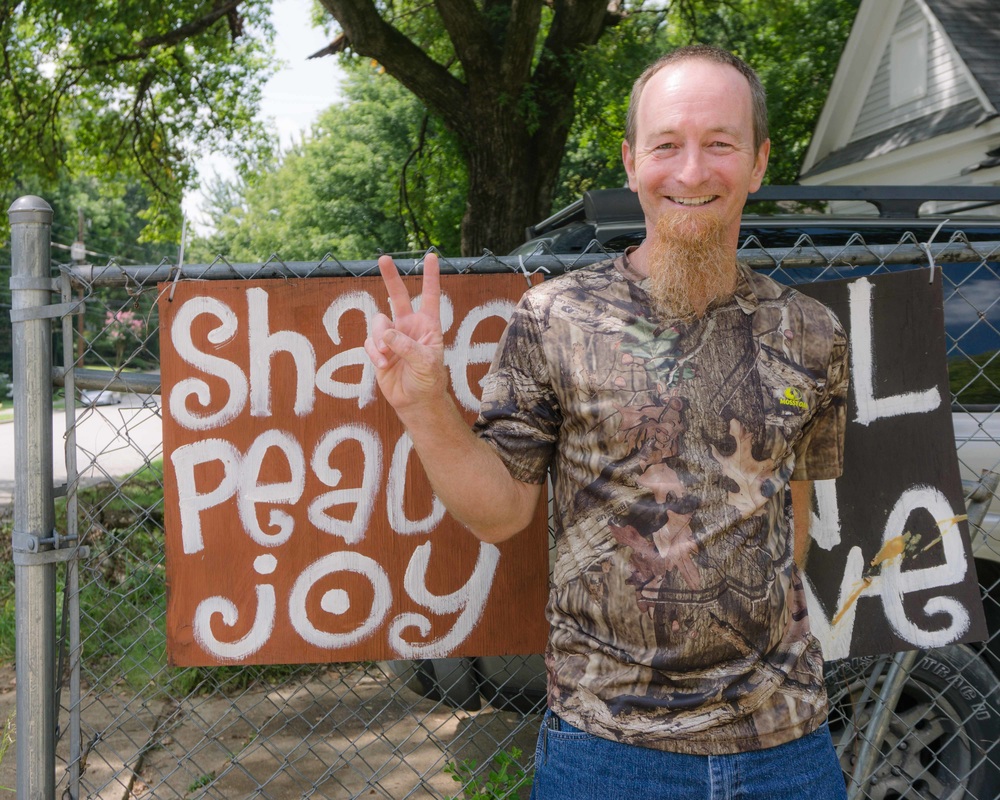
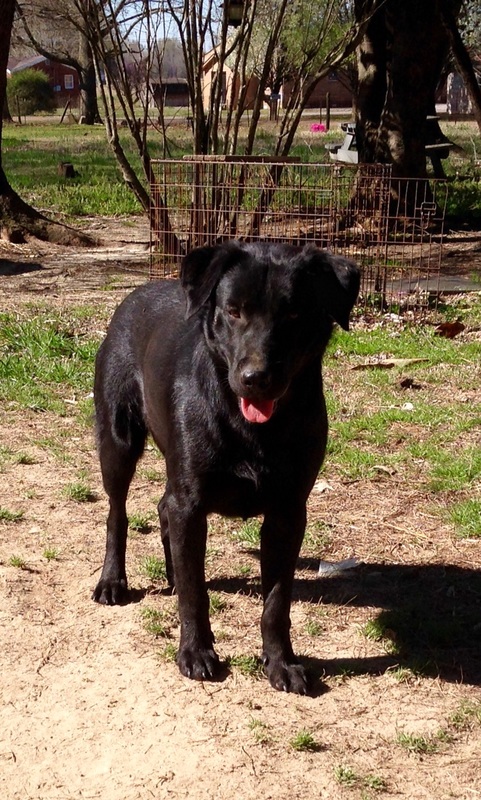
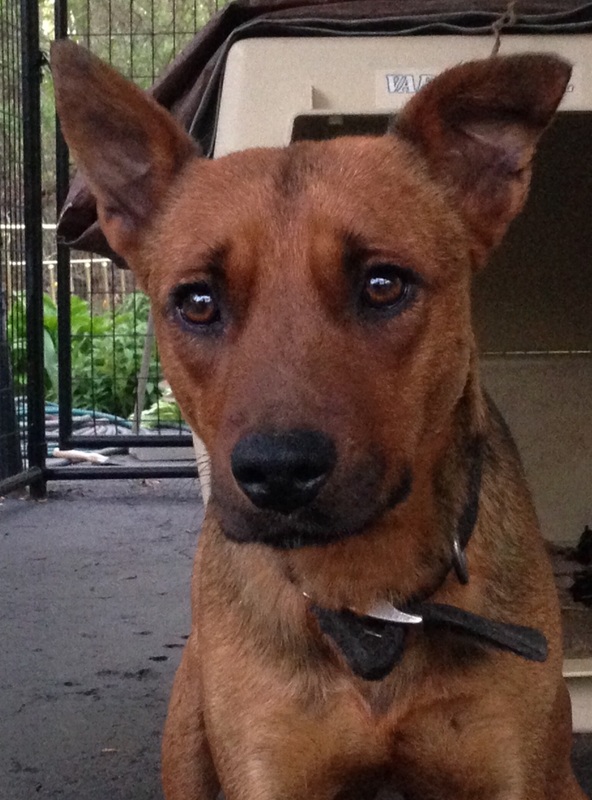
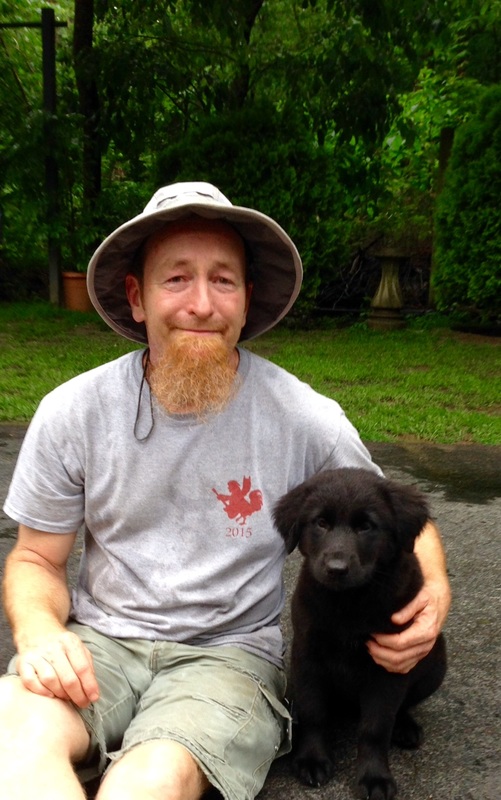
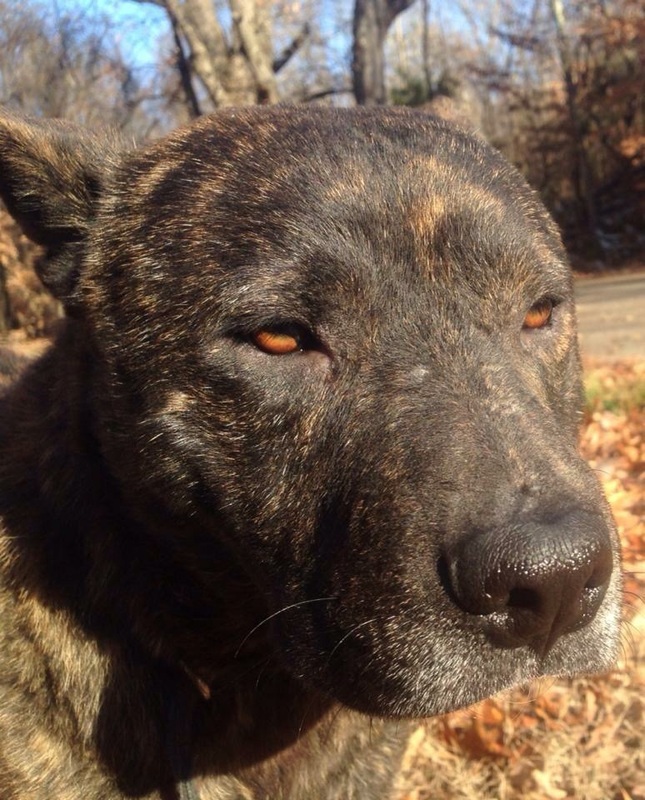
 RSS Feed
RSS Feed